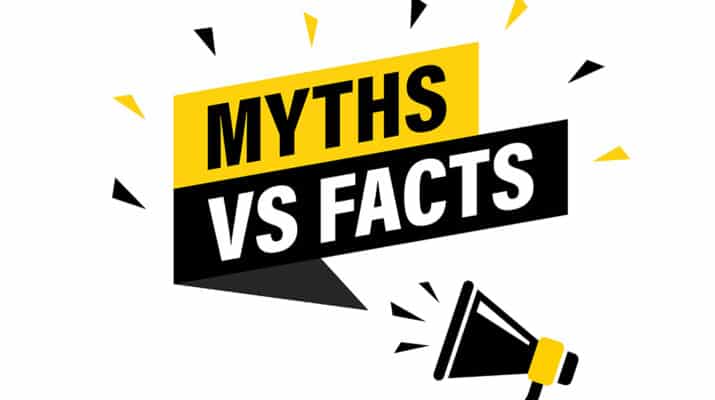Do you believe any of these? Really?
By Deborah Jeanne Sergeant
Maybe it was information passed down to you. Or perhaps you always assumed something to be true. But it’s time to clear up a few myths about women’s health.
Myth: Women don’t need to lift weights to be healthy.
Truth: “Strength training and good nutrition is how women can stay healthy,” said Brian De Luca, physical therapist and strength coach with UB MD Orthopedics and Sports Medicine in Buffalo.
Myth: Strength training only builds muscles.
Truth: “Strength training can help women prevent a lot of the age-based degenerative osteoporotic conditions,” De Luca said.
Building muscle strengthens bones, as the tension placed on bones helps them become stronger. Any weight-bearing exercise also helps strengthen bones.
Myth: Lifting heavy weights makes women look bulky and less feminine.
Truth: “Women will sometimes undertrain with strength, whether that’s a body image thing or cultural expectation,” De Luca said. “That’s starting to change and move in a good direction, especially with younger women who want to get more involved with lifting and want a more athletic body than a skinny body.”
Myth: Being athletic is for only young women.
Truth: “There’s a conversion of some of the women in their middle age getting involved in strength training and wellness that they didn’t have the opportunity doing growing up,” De Luca said. “They might start in their 30s with running or yoga or cross fit or strength training at the gym.”
Myth: If I’m having trouble losing weight, it’s probably a thyroid disorder.
Truth: Although it’s important to rule out a thyroid disorder if a few of the symptoms are evident, the reason could be something else.
“We get a lot of referrals for people who are having trouble losing weight or have difficulty with sleep,” said physician Ajay Chaudhuri, division chief of endocrinology, diabetes and metabolism at UBMD Internal Medicine and Jacobs School of Medicine and Biomedical Sciences, University at Buffalo. “Once the blood test shows there’s not a problem, we look at improving general health. Drink enough water, eat a proper diet, get enough exercise, like walking and try to improve sleep hygiene. All of us are rushing and we ignore those little things that generally affect wellbeing.”
Myth: Pelvic floor problems like sexual issues and leaking urine affect only older women.
Truth: “It’s not an age or a gender-related issue,” said Liz Loycano, doctor of physical therapy at Finger Lakes Health.
Myth: I have had children, so leaking urine when I sneeze or laugh is just part of my life now.
Truth: “Physical therapy can definitely help that,” Loycano said. “People think about PT for their knee, shoulder or neck but the pelvis gets forgotten. They don’t realize that your pelvic floor muscles are part of your core; it’s not just the belly. You need it for breathing, posture and movement in general.”
Some physical therapists even specialize in pelvic floor issues. In New York, patients can self-refer to a physical therapy practice and most health insurance will cover a certain number of visits without a primary care provider’s referral.
Myth: I’ve had ongoing issues with painful bowel movements or pain with sex since I broke my tailbone and there’s nothing I can do about it.
Truth: “It could be an injury that happened 20 years ago, but physical therapy can help,” Loycano said. “It’s another venue to go down. Medications help with pain but if you want to get to the root of the problem, there’s another option: physical therapy.”
Myth: There’s so much caffeine in green tea that you should avoid it.
Truth: “Drink caffeinated or decaffeinated green tea three times a day because the polyphenols and antioxidants are so good for you,” said Trudy Arsentault, Rochester Regional Health nurse navigator, lifestyle medicine nurse and host of Wellness Wednesdays at the JCC.

